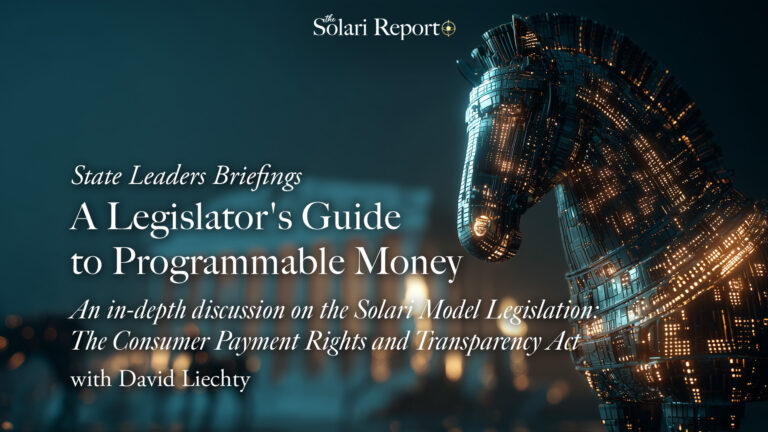“The very word ‘secrecy’ is repugnant in a free and open society; and we are as a people inherently and historically opposed to secret societies, to secret oaths, and to secret proceedings.” ~ John F. Kennedy
By Catherine Austin Fitts
Amy Benjamin’s landmark analysis “The Many Faces of Secrecy” was published in the William & Mary Policy Review in October 2017. It addresses the “systemic secrecy crisis” in the United States. Benjamin is a lecturer at the Auckland University of Technology and is a former attorney at the US Department of Justice.
Her published abstract describes her analysis as follows:
“Political secrecy in the United States has never been more studied – and less understood – than it is today. This irony is due in large part to the slippery nature of the phenomenon: Secrecy presents in different guises depending on the area of governmental activity under consideration. In the classified world of the U.S. national security state, secrecy results from affirmative governmental acts designed to enforce a sharp distinction between official and public knowledge. In the outsourced and technocratic worlds of governmental contracting and economic management, secrecy results from quiet acts of exemption of whole areas of decision-making from the normal processes of public scrutiny. Scholars have underestimated the magnitude of the political secrecy that besets American society, and misconceived prescriptions meant to manage it, because they have failed to recognize that they are dealing with the same challenge in different form across multiple disciplines.
This Article attempts to effect, for the very first time, the kind of comparing-of-notes that is needed for a proper assessment of the scope of political secrecy. It introduces a simple yet indispensable typology – direct versus indirect secrecy – that enables us to recognize the many different faces of secrecy. Once we do so we are in a position to realize that we are confronting a systemic secrecy crisis. For various reasons and under cover of conflicting rationales, large swaths of policy-making have been placed beyond the review-and-reaction authority of the American people, to the detriment of even the most humble conceptions of transparency and democracy.”
~Benjamin, Amy, The Many Faces of Secrecy (September 18, 2017). William & Mary Policy Review, Vol. 8.2 (2017) . Available at SSRN.
While I was in Auckland, I had the opportunity to interview Amy for the Solari Report. We discussed her concepts of direct and indirect secrecy and explored in detail how indirect secrecy is engineered so as to make it difficult, if not impossible, for the general population to understand what is happening around us — in the government, in the economy and the financial markets.
Indirect secrecy includes (i) monetary and fiscal policy (making sure you do not have accessible central bank and government financial disclosure so you can understand “how the money works”), (ii) outsourcing government operations and intelligence to private corporations and (iii) engineering secret agreements and transactions through international institutions.
It is a challenge to understand how so much is kept secret. Once you understand the mechanics and infrastructure, however, that engineers this growing divide between “official reality” and reality, the world we are living in today starts to make a lot more sense.
We explore how to return transparency to our governments and public discourse.
We will publish this fascinating discussion for you this coming Thursday.
In next week’s Let’s Go to the Movies I will comment on Bill Arkin’s excellent database development for the series he co-authored Top Secret America described here in his 2011 interview on Democracy Now.
Unfortunately, this searchable data has recently been taken off line.
It is the last week of the month so there is no Money & Markets. I will be flying from New Zealand to San Francisco. If you are in the Bay Area I hope to see you for our tea on the afternoon of June 2. Subscribers can sign up here.
Related Reading:
Blank Spots on the Map: The Dark Geography of the Pentagon’s Secret World by Trevor Paglen





















































































































Oops! Deleted. Thanks, Jim.
When I click on the links to “Top Secret America” I get the message,
“Due to new European data protection law, this page is temporarily unavailable to you.
I get the same message when I try to access the pages via the Wikipedia article.
Data protection now seems to be the new “for national security reasons”.
Wow I can not fathom why the European data protection law would result in that page coming down. Will do some more sleuthing.
When I click on the links to “Top Secret America” I get the message,
“Due to new European data protection law, this page is temporarily unavailable to you.
I get the same message when I try to access the pages via the Wikipedia article.
Data protection now seems to be the new “for national security reasons”.
Wow I can not fathom why the European data protection law would result in that page coming down. Will do some more sleuthing.
Thinking out loud
Lots of talk about tariffs. Has Brexit made UK in a weak bargaining stance with U.S. over steel tariffs?
And will Canada now wake up and realize that their country is like an orphaned child that has been raised by an adopted parent (U.S.) while the real mother (Q.E.2) has visitation rights?
Maybe it is time for Canada to notice all the foreign money flowing into America. One can only imagine the economic strength of a combined America & Canada.
Thinking out loud
Lots of talk about tariffs. Has Brexit made UK in a weak bargaining stance with U.S. over steel tariffs?
And will Canada now wake up and realize that their country is like an orphaned child that has been raised by an adopted parent (U.S.) while the real mother (Q.E.2) has visitation rights?
Maybe it is time for Canada to notice all the foreign money flowing into America. One can only imagine the economic strength of a combined America & Canada.
Just when you feel Solari cant get any better Catherine takes the bar to a higher level in this absorbing interview. Amy is a rare treasure that brings so much so what Solari represents into one of the best conversations I’ve ever had the pleasure to listen to. “If ever there was a time to pay attention its now”
Just when you feel Solari cant get any better Catherine takes the bar to a higher level in this absorbing interview. Amy is a rare treasure that brings so much so what Solari represents into one of the best conversations I’ve ever had the pleasure to listen to. “If ever there was a time to pay attention its now”